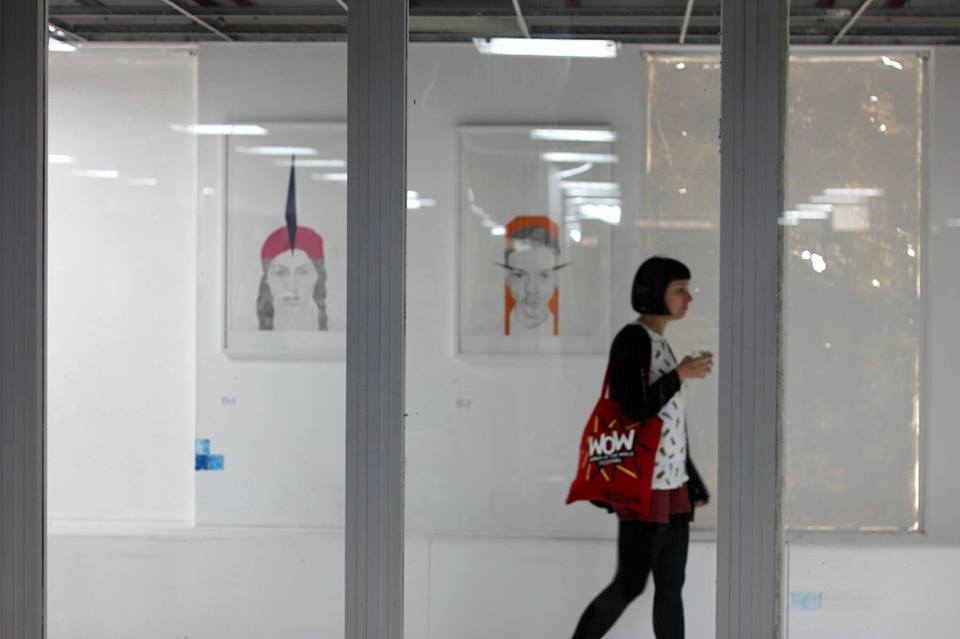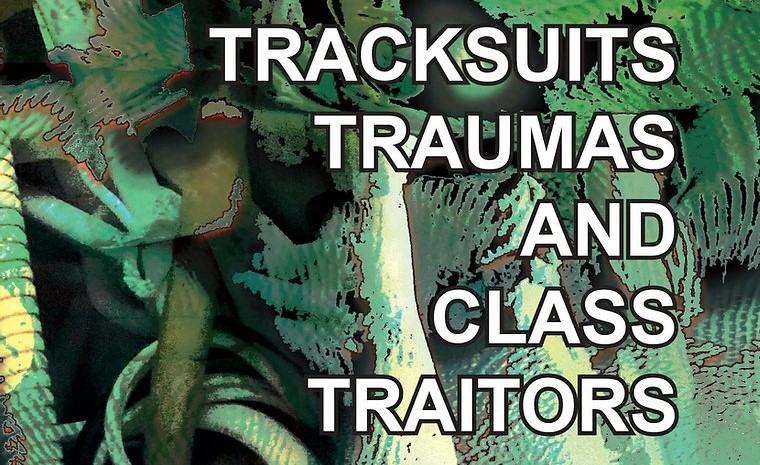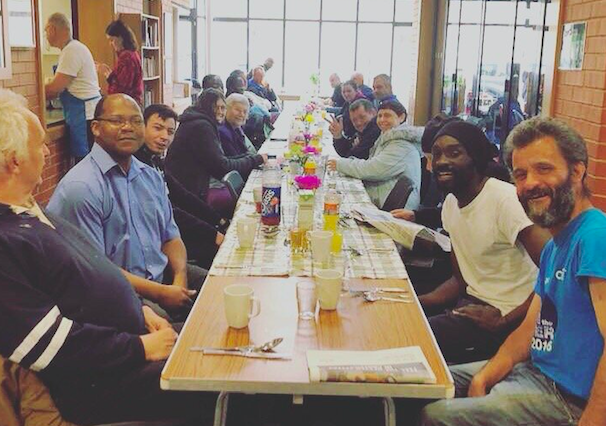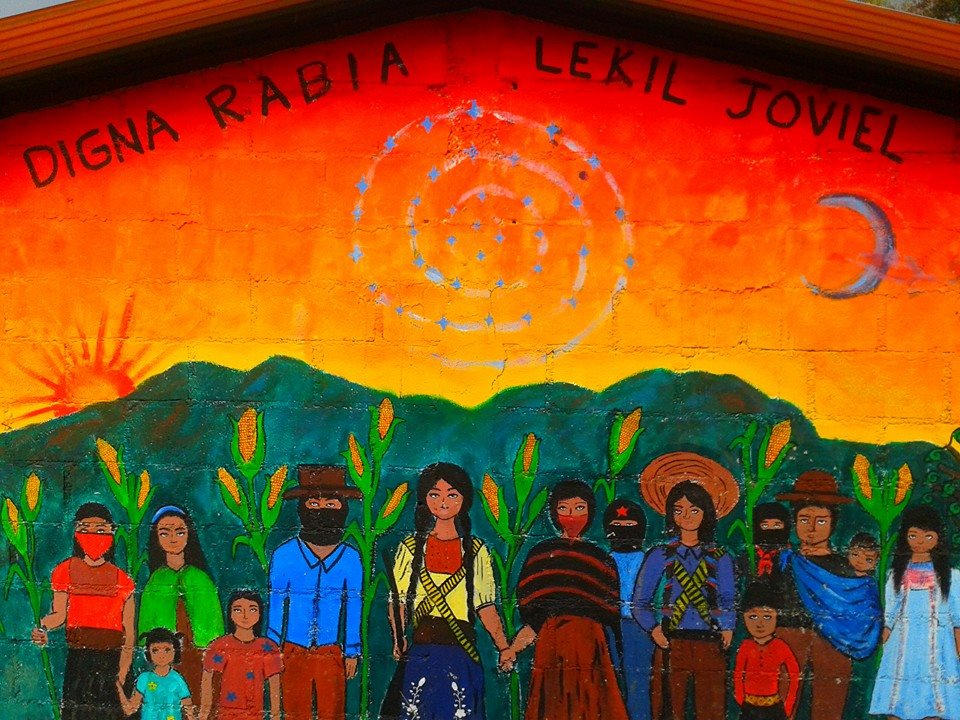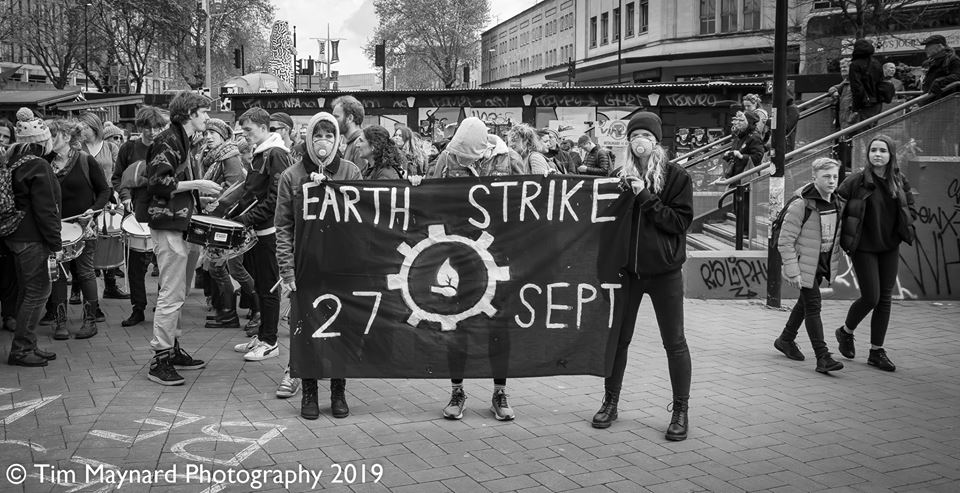On 9th May, Manchester welcomed a new ‘members’ club’ to the city, designed ‘to provide free space to radical political and cultural groups and organisations’. With a temporary home in the heart of the city-centre, the project is looking to contribute an important piece of infrastructure that is long-needed in the city.
Developed as a conscious effort to contribute to the building of a new popular left culture, Partisan looks set to provide not only a much needed resource, but also a focal point in helping to take far-left politics out of its subcultural ghetto.
We thought we’d speak to some of the Partisan team to find out more, and to see what the future holds for this exciting project.
Q: Hi! So let’s start with the basics: can you tell us a bit about where the idea for Partisan came from? How long have you been working on this project?
The idea for Partisan came from a group of us who are activists and also musicians and club promoters. As activists we were having to pay to use space in the city (usually at around £50 a meeting) and as musicians and club promoters we were getting a raw deal from venue owners and often end up paying to put on gigs and nights out of our pocket. We wanted to combine a music venue and café-bar with space for meetings, so that campaigners can meet for free and musicians get a better deal.
We’ve been working on it for six months. We met in the backroom of a pub on a rainy Saturday in February. By May we had legally constituted as a workers’ co-op and started our temporary space in 3Space.
Since then a wide range of community groups have been using the temporary Partisan space for meetings, training and organising, including: Cities of Hope, Greater Manchester Housing Action, Ladyfest Manchester, Manchester People’s Assembly, New Economy Organiser’s Network (NEON), Picket the Profiteers, Another Europe is Possible, MCR Radical Mental Health, Manchester Punk Festival, Global Justice Now, Steady State, Manchester Friends of Kurdistan, Manchester Film Co-op, Manchester Coalition of Disabled People, Manchester No Prisons, Left Unity, Dear Friend, Manchester and Trafford Momentum.
We’ve also had a really wide range of gigs, film screenings and other cultural events. These have been on an affordable, pay by donation basis (you can see more on our website).
Q: We know that there was quite a big discussion about the fact that this wasn’t a social centre, and that you wanted to draw a distinction between Partisan and some other ‘radical spaces’ around the country. Can you tell us a bit more about this distinction, and how you see Partisan doing something different?
Many of us have been involved in social centres and felt that there were some things about that model that have meant that they have either become activist ghettoes, or have folded completely when they can’t be sustained. First of all, it isn’t really possible to squat anymore and so we need to rent (and hopefully eventually buy). Most people are working long hours and/or are in precarious positions and therefore it’s really hard to sustain something on a volunteer basis. We knew that to make it sustainable, it needed paid staff and some form of income stream (the gig space/bar).
Importantly, we also want to make sure that this is not a leftist ghetto, but is open to a range of people who come in and can therefore be exposed to progressive ideas and organisations. To do this, we want it to be properly designed, warm, well-lit and pay some attention to the design of the space.
Q: One of the reasons we formed Plan C was the belief that previous political forms – such as the ‘party’ and more recently the ‘network’ – weren’t fit to the task of organising radical social change. In short, we were convinced that experimenting with our organisational form was a key part of developing and testing new theories of how radical social change will happen. Does the Partisan crew share this perspective? How do you hope the infrastructure of Partisan could contribute to building a different type of left praxis?
We really believe that to be able to organise together and to cross-fertilise across groups we need actual physical space to meet each other in and to call our own. We think it can help build a different kind of praxis by bringing people into the space for music and cultural events and from there they will find out about a whole range of issues and campaigns. We think it will contribute to groups being able to work more easily together and support each others’ actions and campaigns. We also hope to generate a range of resources that can be collectively used, such as a van, sound systems and storage. This left praxis will be about working more collaboratively together and being open to new sets of people.
We also want left praxis to be fun. We often fall into traps of holding interminable meetings and things can get very stuffy and dull. We need to also listen to music together, play music together, watch films, dance and party. These are the things that keep us going and keep us alive. Not just bread, but roses too.
Q: Any project like this needs a lot of resources – time, energy and money. How are you doing at the moment? Are you fully resourced, and how are you looking to be sustainable in the future?
The key thing we need at the moment is to raise money and we currently have a crowdfunder. We need to hit our target to get any of it, so we’d really appreciate people chucking in whatever they can afford. You also get yearly membership to Partisan with any donation – operational from when we open. It’s here: https://www.spacehive.com/partisancollective
Once we’re up and running permanently, we will be employing a full time manager from the co-op. We will at first ask volunteers to staff the bar once a month, in exchange for the free use of space, but we hope when we’re more financially stable that we will be able to employ more people. Since we are a co-op everyone will be paid the same, whether they are a manager, a cleaner or bar staff. Everyone working there will also have a say in how Partisan is run through democratic decision making.
The idea is that the bar-café and music venue will make it sustainable to employ someone to run Partisan and to offer space for free. We know from experience that people burn out running projects like this on a voluntary basis and we want to avoid that.
Q: You’ve mentioned that the current space is a temporary space. How long do you expect to be there, and where do you hope the permanent Partisan space will be located?
The temporary space closed in October, having been lent to us by 3Space. We’re now looking for a new space. We want it to be central, so within ten minutes walk or so of the city centre. Ancoats is being rapidly bought up and developed, so we’re starting to think about the area around Strangeways, which is still very industrial and has a lot of space. We want to create a bit of a scene around Partisan by linking up with artists, progressive groups who want desk space and makers who will use studios. So we hope it’ll become a bit of a radical ‘destination’ in the city.
Q: How can people find out more about joining Partisan?
We’d absolutely love more people to get involved in the co-op. Just drop us a line on Facebook or info@partisancollective.net
There is membership here: www.partisancollective.net/membership
And more information here: www.partisancollective.net/
This interview has been published by Plan C MCR.

